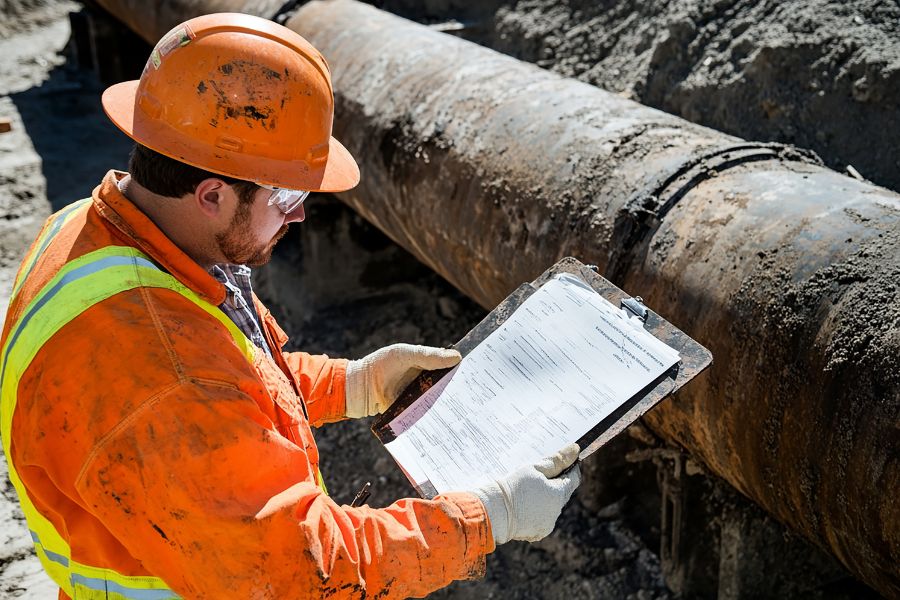The Future of Corrosion Engineering Careers: Opportunities Ahead
Corrosion engineering, often referred to as the “silent saviour” of industries, plays a critical role in maintaining the structural integrity of materials and infrastructure. From massive oil rigs in the ocean to bridges connecting cities, corrosion engineers are the guardians against material degradation, ensuring safety, longevity, and cost efficiency. This field has grown immensely over the years, driven by technological advancements and the increasing need for sustainable solutions. But what does the future hold for corrosion engineering careers? Let’s dive into the skills, opportunities, and challenges shaping this evolving field.
What Is Corrosion Engineering and Why Is It Important?
Corrosion engineering focuses on studying and preventing the deterioration of materials, particularly metals, caused by environmental and chemical factors. Corrosion, a natural process, can lead to catastrophic failures if left unchecked, costing industries billions annually.
Corrosion engineers are responsible for designing protective measures such as coatings, selecting corrosion-resistant materials, and monitoring structures for signs of wear and tear. Their work ensures the safety of pipelines, buildings, vehicles, and even medical implants. By mitigating the effects of corrosion, they not only enhance safety but also contribute to sustainability by prolonging the lifespan of materials and reducing waste.
What Skills Are Required for a Career in Corrosion Engineering?
A successful career in corrosion engineering demands a unique blend of technical expertise and interpersonal skills.
Technical Skills:
-
- Materials Science: Understanding the properties of metals, polymers, and composites is crucial.
- Chemistry: Knowledge of electrochemical processes is essential for diagnosing and preventing corrosion.
- Engineering Principles: Proficiency in structural and mechanical engineering helps in designing effective solutions.
Soft Skills:
-
- Problem-Solving: Corrosion engineers often face complex challenges that require innovative thinking.
- Communication: Collaborating with multidisciplinary teams and explaining technical concepts to stakeholders are key.
- Teamwork: Many projects demand coordination with experts from other fields.
Certifications and Tools
Certifications from organizations like NACE International (now AMPP) validate expertise and boost career prospects. Familiarity with tools like corrosion monitoring devices and modelling software is also valuable.
Which Industries Are Hiring Corrosion Engineers?
Corrosion engineering is a versatile field with applications across various sectors. Here are some industries actively seeking corrosion specialists:
Oil and Gas
Pipelines, offshore rigs, and refineries face constant exposure to corrosive environments. Corrosion engineers in this industry ensure safe and efficient operations, reducing the risk of leaks and accidents.
Aerospace and Automotive
Lightweight materials like aluminium and composites are prone to corrosion. Engineers in these sectors develop protective measures to enhance the performance and durability of vehicles and aircraft.
Infrastructure and Construction
Bridges, tunnels, and buildings require robust anti-corrosion strategies to withstand environmental stressors and maintain public safety.
Marine and Offshore
Saltwater accelerates corrosion, making it essential for ships, docks, and offshore platforms to have advanced corrosion protection systems.
What Are the Educational Qualifications Needed for Corrosion Careers?
A solid educational foundation is crucial for aspiring corrosion engineers.
Undergraduate Programs
Most professionals start with a bachelor’s degree in materials science, chemical engineering, or mechanical engineering. Specialized courses in corrosion may be offered as electives.
Advanced Studies
Master’s programs in corrosion engineering or related fields provide deeper insights into electrochemistry, material behaviour, and protective technologies.
Certifications
Certifications such as NACE’s CP (Cathodic Protection) or AMPP’s CIP (Coating Inspector Program) demonstrate expertise in specific aspects of corrosion management.
Internships and Practical Experience
Hands-on experience through internships or apprenticeships equips students with real-world problem-solving skills, making them more attractive to employers.
What Are the Emerging Opportunities in Corrosion Engineering?
The future of corrosion engineering is brimming with opportunities, thanks to advancements in technology and a global focus on sustainability.
Role of AI and Technology
Artificial intelligence and machine learning are revolutionizing corrosion monitoring. Predictive analytics can identify potential issues before they escalate, saving time and resources.
Sustainable Materials
The demand for eco-friendly materials and coatings is rising. Corrosion engineers are at the forefront of developing green solutions that reduce environmental impact.
Global Trends
As developing countries invest in infrastructure and renewable energy, the need for corrosion protection expertise is growing. Offshore wind farms and solar panel installations are new arenas for corrosion engineers.
How Does the Job Market for Corrosion Engineers Look Today?
Corrosion engineers are in high demand, and the job market is expected to expand further in the coming years.
Current Demand
Industries like oil and gas, renewable energy, and transportation are actively hiring corrosion specialists.
Salary Insights
Entry-level positions typically offer competitive salaries, while experienced professionals can command six-figure incomes, especially in high-stakes industries like offshore drilling or aerospace.
Global Hotspots
Countries with significant industrial activity, such as the USA, Germany, and the UAE, are leading employers of corrosion engineers. Emerging markets in Asia and Africa also present exciting opportunities.
What Challenges Do Corrosion Engineers Face?
While corrosion engineering is a rewarding field, it is not without challenges.
Complex Problems
Diagnosing corrosion issues in large structures like pipelines or bridges can be daunting, requiring a combination of technical acumen and innovative thinking.
Technological Adaptability
Staying updated with rapidly evolving technologies, such as advanced coatings and nanomaterials, is essential.
Regulatory Compliance
Adhering to strict environmental and safety regulations can be challenging, particularly in industries like oil and gas.
How to Build a Successful Career in Corrosion Engineering?
To thrive in this field, aspiring professionals should adopt a proactive approach to career development.
Networking
Joining professional organizations like AMPP (Association for Materials Protection and Performance) provides access to valuable resources, industry events, and job opportunities.
Continuous Learning
Enrolling in workshops, webinars, and advanced certifications helps professionals stay ahead of industry trends.
Professional Experience
Taking on challenging projects and seeking mentorship from experienced engineers can accelerate career growth.
Why Is Corrosion Engineering a Career Worth Pursuing?
Corrosion engineering offers numerous advantages, making it an attractive career choice:
High Demand
The growing need for corrosion prevention across industries ensures a steady demand for skilled professionals.
Career Stability
With infrastructure and industrial maintenance being critical, corrosion engineers enjoy long-term job security.
Meaningful Impact
By preventing material failures, corrosion engineers contribute to public safety and environmental sustainability.
How CORCON Institute of Corrosion is Supporting Careers
As a premier institute in corrosion awareness and education, CIC is dedicated to nurturing future leaders in corrosion engineering:
World-Class Training and Certifications
We offer AMPP-recognized certification programs, ensuring professionals meet global industry standards.
Networking Opportunities
CIC connects budding engineers with experts, industrialists, and technocrats through annual conferences, seminars, and conventions.
Access to Cutting-Edge Knowledge
Our technology meetings, workshops, and lectures provide insights into the latest developments in corrosion control.
Global Recognition
CIC is affiliated with the Association for Materials Protection and Performance (AMPP), providing members with access to an international network of professionals and resources.
Closing Insights
With CORCON commitment to advancing the field, corrosion engineering careers are not just about tackling technical challenges but also contributing to sustainable development globally. Whether you’re an aspiring professional or an industry veteran looking to enhance your skills, the opportunities ahead are boundless.
Join CORCON Institute of Corrosion today to be part of this transformative journey in corrosion engineering and secure your place in a future-ready industry.





